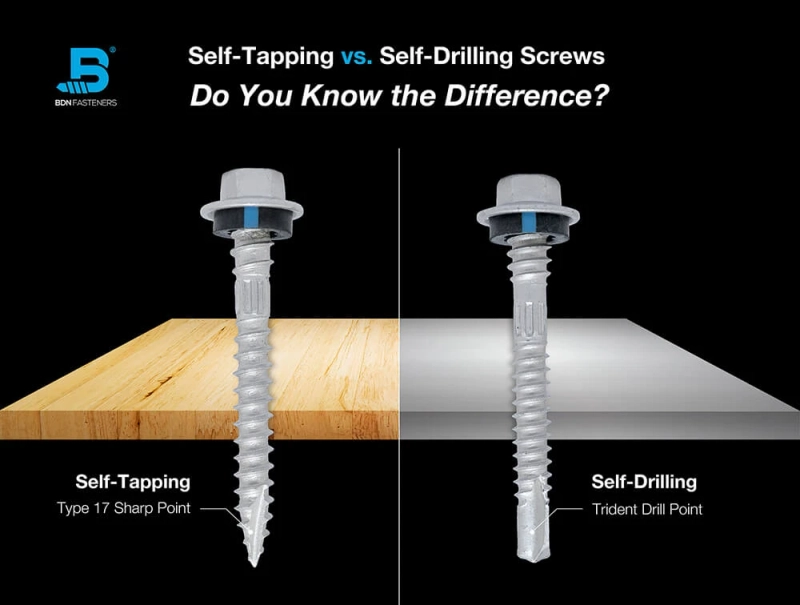Introduction
self tapping screw, also known as self-threading screws, are a versatile and essential component in construction and DIY projects. These innovative fasteners can save you time, effort, and money, making your work more efficient and precise. In this article, we'll delve into the world of self-tapping screws, exploring their uses, benefits, and answering some frequently asked questions (FAQs).
What Are Self-Tapping Screws?
Self-tapping screws are specialized screws designed with a unique feature—a pointed end and sharp threads. These threads are designed to cut their own threads as they are driven into a pre-drilled or untapped hole. The ability to create threads in various materials, from wood to metal and plastic, makes them indispensable for a wide range of applications.
FAQs about Self-Tapping Screws
1. What Materials Can Self-Tapping Screws Be Used With?
Self-tapping screws are incredibly versatile and can be used with a wide range of materials, including:
Wood: For woodworking and furniture assembly.Metal: For securing metal sheets or fastening metal to wood.Plastic: Ideal for joining plastic components.Drywall: Perfect for hanging fixtures or shelves.Concrete: In certain cases, they can be used with concrete anchors.2. What Are the Benefits of Using Self-Tapping Screws?
Self-tapping screws offer several advantages:
Time-Saving: No need to pre-drill holes, saving time and effort.Strong Hold: They create secure connections due to the precise threads.Versatility: Suitable for a variety of materials.Reduced Risk of Splitting: In wood applications, they reduce the risk of splitting the material.3. How Do I Choose the Right Self-Tapping Screw?
Selecting the appropriate self-tapping screw involves considering the material, size, and purpose. Here are some key factors to keep in mind:
Material Compatibility: Ensure the screw is compatible with the material you're working with.Length: The screw length should be sufficient to secure the two materials.Head Type: Choose a head style (e.g., pan, flat, or hex) based on your application.Thread Type: Different thread types are suitable for different materials.4. Can Self-Tapping Screws Be Removed and Reused?
Yes, self-tapping screws can be removed and reused, but with some limitations. Their grip weakens with each use, so it's advisable to replace them for critical applications or when a secure fastening is essential.
5. Do I Need Special Tools to Use Self-Tapping Screws?
You don't need specialized tools, but using a power screwdriver or drill can make the job easier and more efficient. Ensure the tool is set to the right torque to prevent over-tightening.
6. Are There Any Safety Precautions to Follow?
Always wear appropriate safety gear, including eye protection and gloves.Take care not to overtighten the screw, as this can damage the material.Follow the manufacturer's guidelines for the specific type of self-tapping screw.7. Can Self-Tapping Screws Be Used Outdoors?
Yes, self-tapping screws can be used outdoors, but you should select screws made of materials resistant to corrosion, such as stainless steel or coated screws. Proper sealing or weatherproofing measures may also be required to ensure long-lasting performance.
Conclusion
Self-tapping screws are a valuable tool in the world of construction and DIY projects. Their ability to create threads in various materials, coupled with time-saving benefits, make them a go-to choice for many applications. By understanding their uses and following best practices, you can master the art of self-tapping screws and ensure secure, efficient fastenings in your projects.


